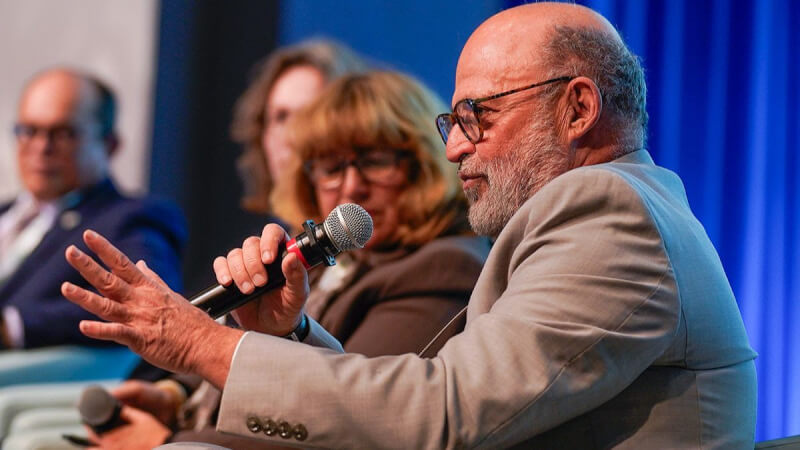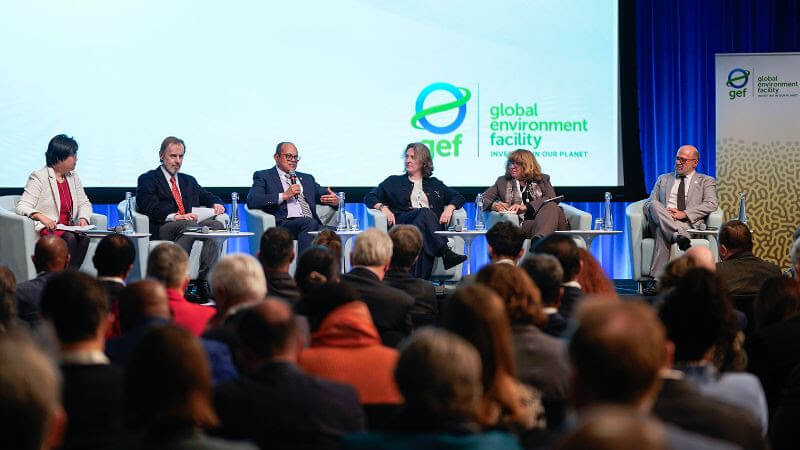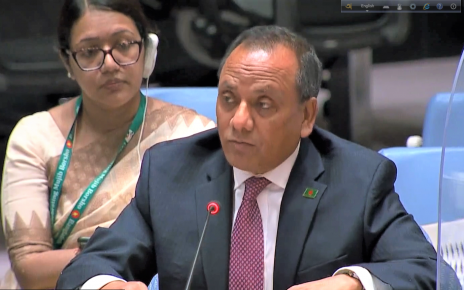Experts take first step towards GEF-9 replenishment
With less than five years on the clock to meet key gathered this week to discuss strategic choices that can make a lasting positive difference for people and the planet.
The Technical Advisory Group meetings were the formal start of the Global Environment Facility’s ninth replenishment process, which will set the framework, size, and ambition of GEF funding provided to developing countries in the July 2026 to June 2030 period.
Environmental scientists, technical experts, and practitioners shared insights about the latest science, best practices, and lessons from past and ongoing investments to provide guidance on what and how the GEF should look into for lasting environmental outcomes in areas including biodiversity, pollution, and land use with a focus on food systems, the ocean, forest biomes, supply chains, wildlife trafficking, and more.
“The GEF was set up over 30 years ago, when these environmental trends were already apparent. Our growing family of funds continues to help countries confront challenges and work together. This ninth GEF replenishment comes at a time of significant need, and we are uniquely suited to effect change in this moment,” said Carlos Manuel Rodríguez, GEF CEO and Chairperson.

Rodríguez, who as Minister of Environment and Energy of Costa Rica oversaw both a rise in forest cover and of economic output in his country, stressed the need for nature-positive governance as a model for public sector decision-making and organization, in support of shared goals for ecosystems and economies alike.
“Progress towards global goals requires nature-positive governance that will generate policy coherence. This is the underlying, necessary condition for the needed systems transformation towards a nature-positive planet,” Rodríguez said. “Misalignments and contradictions of public policies and governance are feeding directly into the major environmental crises we are facing. Nature-positive governance is the missing link that stands to underwrite and amplify our progress towards sustainable development.”
Technical Advisory Group participants were joined by the heads of the Convention on Biological Diversity, the Stockholm Convention on Persistent Organic Pollutants, the Minamata Convention on Mercury, and the Convention on International Trade in Endangered Species, as well as senior officials from the UN Division of Ocean Affairs and the Law of the Sea and other entities working as part of the GEF partnership to address persistent challenges from environmental damage that stretch beyond borders and impact both rural and urban areas, as well as wild spaces.

GEF Director Claude Gascon thanked the gathered experts for their substantive contributions across a range of topics, all of which will feed into next steps for the GEF-9 replenishment process. “This is so important. There is a reason this is the first event of the replenishment,” Gascon said. “The information and guidance shared this week is extremely valuable, and is highly relevant to where we have been and where we want to go.”
CBNA24 রকমারি সংবাদের সমাহার দেখতে হলে
আমাদের ফেসবুক পেজে ভিজিট করতে ক্লিক করুন।
আমাদের ইউটিউব চ্যানেল ভিজিট করতে পোস্ট করুন।




